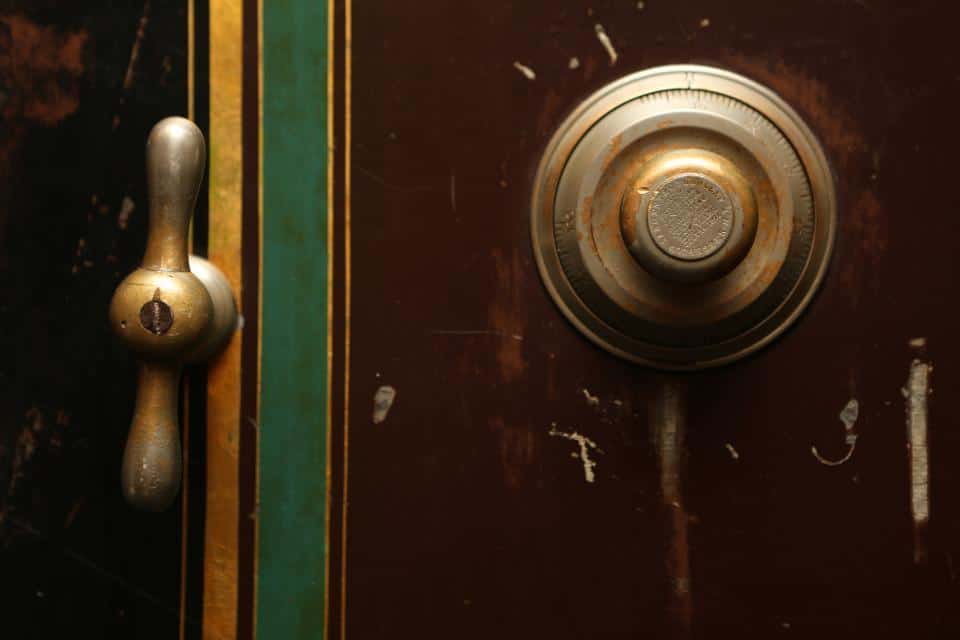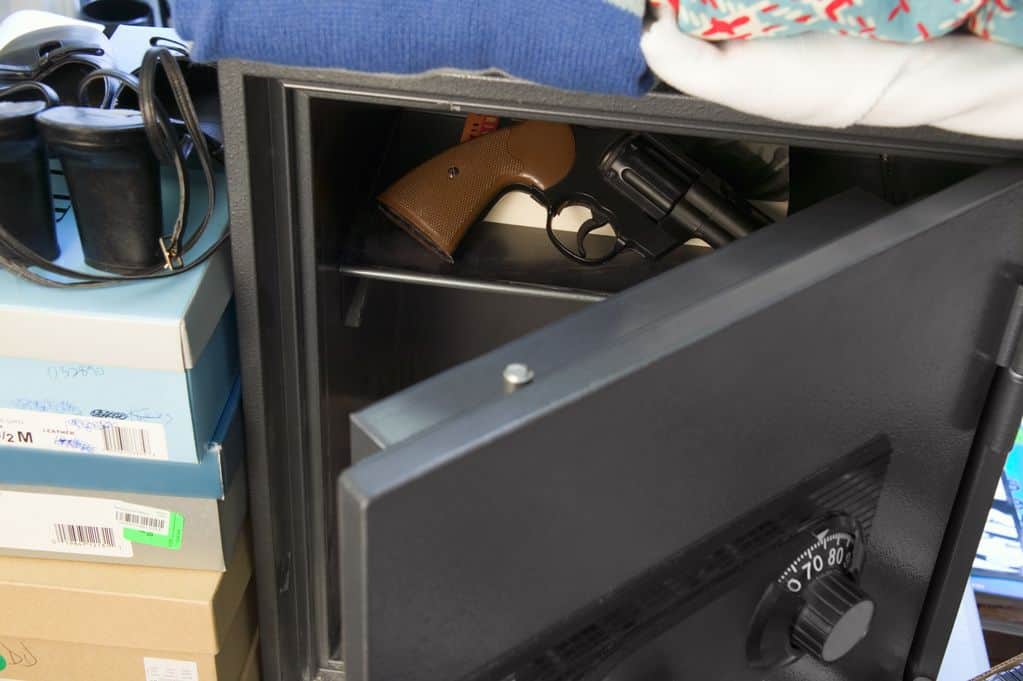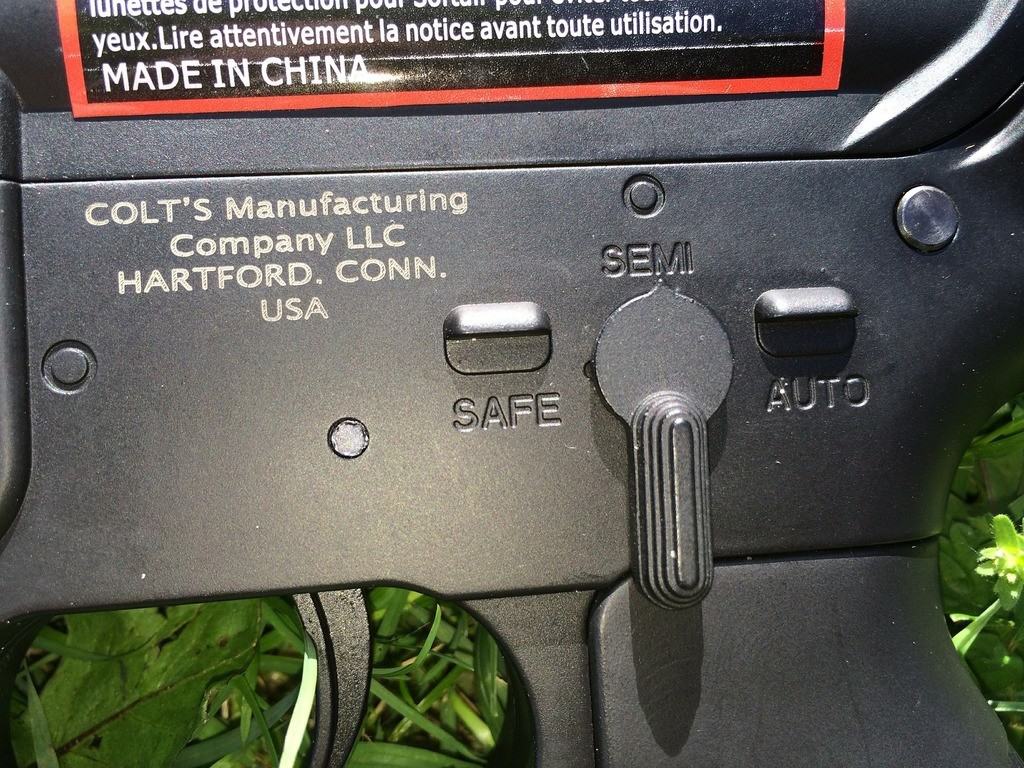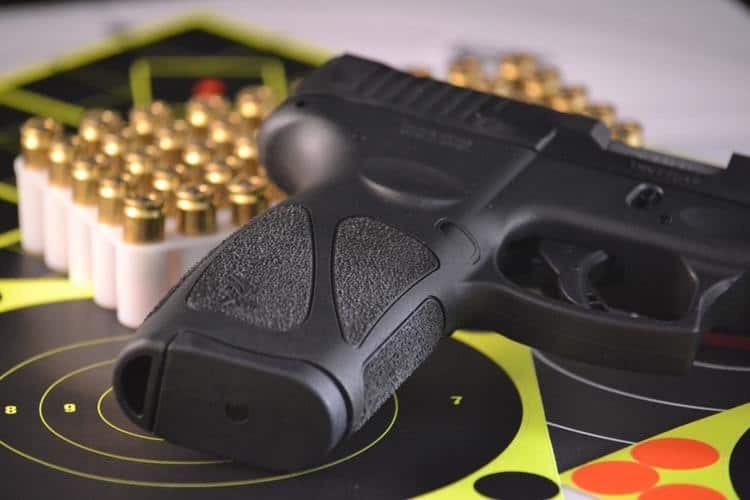As an Amazon Associate we earn from qualifying purchases.
There’s an ongoing debate on gun ownership and one of the topics discussed is the requirement to have a gun safe to be able to buy a gun. There are millions of legally owned firearms all over America. With this vast amount of guns around, it begs the question: do you need a safe to buy a gun?
Contents
- Do You Need a Safe to Buy a Gun?
- Do Guns Have to Be Stored in a Safe?
- States Requiring All Firearms Stored With a Locking Device
- States Requiring Firearms Stored With a Locking Device in Place if the Person Resides With a Prohibited Person
- States Requiring Locking Devices With All Firearms Manufactured, Sold or Transferred in the State
- States Requiring Locking Devices on All Firearms Transferred by Licensed Dealers
- States Requiring Locking Devices With Handgun Sales
- What Should I Know Before Buying a Gun?
- Conclusion
Do You Need a Safe to Buy a Gun?
You don’t need a safe in order to buy a gun. The 2nd amendment serves as the legal basis for this as it implies the “right of the people to keep and bear arms”. However, federal and state governments implement different laws that help regulate firearms.

Safe Storage laws encourage gun owners to be responsible for how they handle their guns by requiring them to store their firearms unloaded and locked when unattended. If you don’t want to get in trouble with the law, check your state law and make sure you have a secured gun safe first before buying firearms if it requires so.
These laws change from state to state, but they also help prevent unauthorized users, including children, from accessing and using firearms, which can reduce the number of tragedies due to suicide, unintentional discharge, and gun theft.
Federal Law
In the United States, there are laws that require Americans to have a gun safe in order to buy a gun. Since October 2005, as part of the Protection of Lawful Commerce in Arms Act, it is illegal for any licensed importer, manufacturer or dealer to sell or transfer any handgun unless the transferee has secure gun storage or safety device.
The law includes various exceptions like transfers to other federal firearms licensees, law enforcement officers, and federal, state or local agencies. The legislation also does not apply to transfers by private sellers and does not require that transferees use the device.
State Law
There are 11 states that have laws concerning firearm locking devices. Massachusetts is the only state that requires people to store all firearms with a lock in place. California, Connecticut, and New York also implement this requirement but only in certain situations.

Federal and state law are almost similar in regards to locking devices. They both require locking devices for certain guns manufactured, sold, or transferred. Some states even have set standards for the design of locking devices or have them approved by a state agency for effectiveness.
Do Guns Have to Be Stored in a Safe?
While it is not against the 2nd amendment for gun owners to store guns in a safe, there are certain situations and conditions in the law that will require you to have one.
Some states even require every gun owner to have a gun safe. As a gun owner, keeping your guns in a gun safe is also the most responsible thing you can do for yourself, your family, and your community.
Here’s a bit of a summary of state laws about gun storage:
States Requiring All Firearms Stored With a Locking Device
- Massachusetts: the only state that requires you to have a locking device for your guns when it’s not in use. This requirement doesn’t apply to firearms “carried by or under the control of the owner or other lawfully authorized users.”
States Requiring Firearms Stored With a Locking Device in Place if the Person Resides With a Prohibited Person
- New York: since 2013 it requires firearm owners to keep their firearm locked if they’re living with a convicted felon, a domestic abuser, or a person with a federally prohibitive mental health history.
- California: In this state, the law requires firearm owners to keep their firearm in a locked container if they live with a person prohibited by state or federal law from possessing a firearm.
- Connecticut: Connecticut also has similar laws but only applies to loaded firearms.

States Requiring Locking Devices With All Firearms Manufactured, Sold or Transferred in the State
- California: All firearms manufactured in California, sold or transferred by a state-licensed dealer must include a firearm safety device approved by the state Department of Justice.
- Massachusetts: in Massachusetts, they consider any handgun or assault weapon sold without a safety device to prevent discharge by unauthorized users a defective product.
States Requiring Locking Devices on All Firearms Transferred by Licensed Dealers
- New York: It prohibits retail sales of guns without a locking device.
- Michigan: It prohibits licensed dealers from selling firearms which doesn’t include a trigger lock or gun case or other gun storage container. The buyer can provide a trigger lock, gun case, or a gun storage container with a copy of the receipt in order for the transaction to be legal.
- Ohio: a gun dealer must offer to sell the buyer a trigger lock, gun lock, or gun locking device upon purchasing a firearm.
States Requiring Locking Devices With Handgun Sales
These states only require locking devices for handgun sales and have different definitions and requirements of a locking device.
- Connecticut
- New Jersey
- Illinois
- Maryland
- Pennsylvania
- Rhode Island

What Should I Know Before Buying a Gun?
Before buying a gun, there are things you must consider and follow if you don’t want anything unfortunate happening to you or those around you.
- Make sure you know how to keep your guns safe.
- Take gun safety and firearms owner training classes.
- Check your state and local laws before purchasing a gun.
Following these tips will lessen your chances with trouble against the government and some mishaps that you get from having no knowledge about gun ownership.
Conclusion
While the 2nd amendment holds true and allows us to own a gun without a safe (some States do require you to have one), it’s also irresponsible as gun owners not to have one. Having your guns stored safe and secure will keep them out of hands from burglars and your kids and prevent any accidents from happening.
